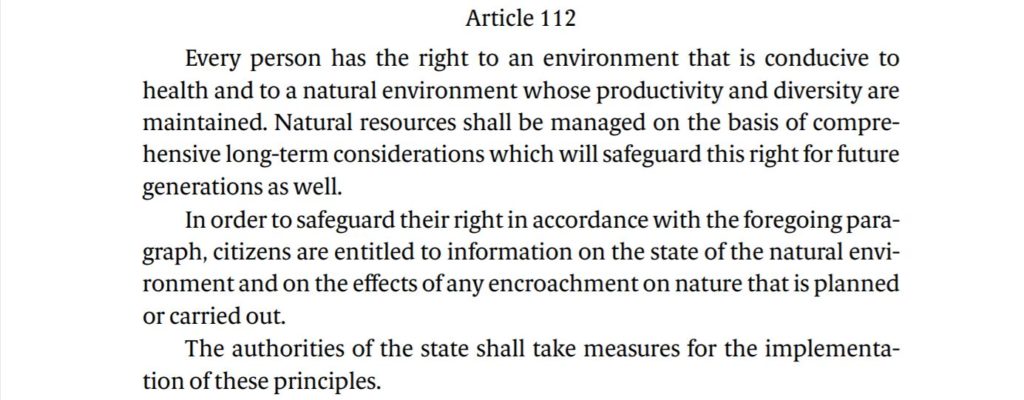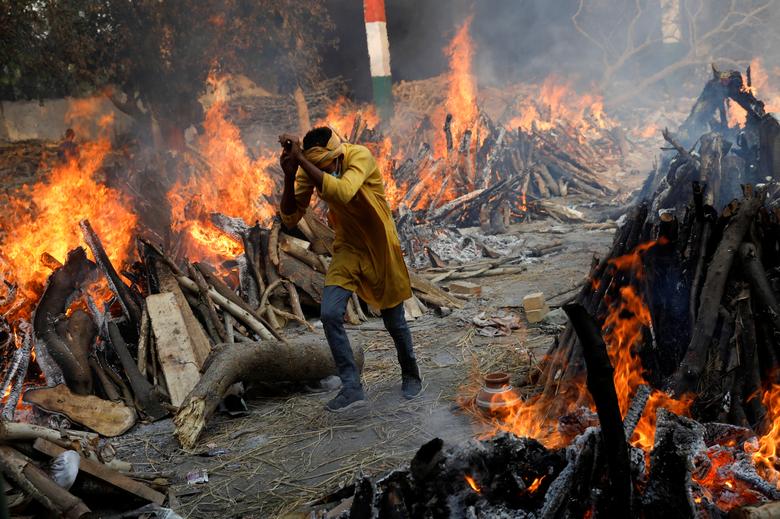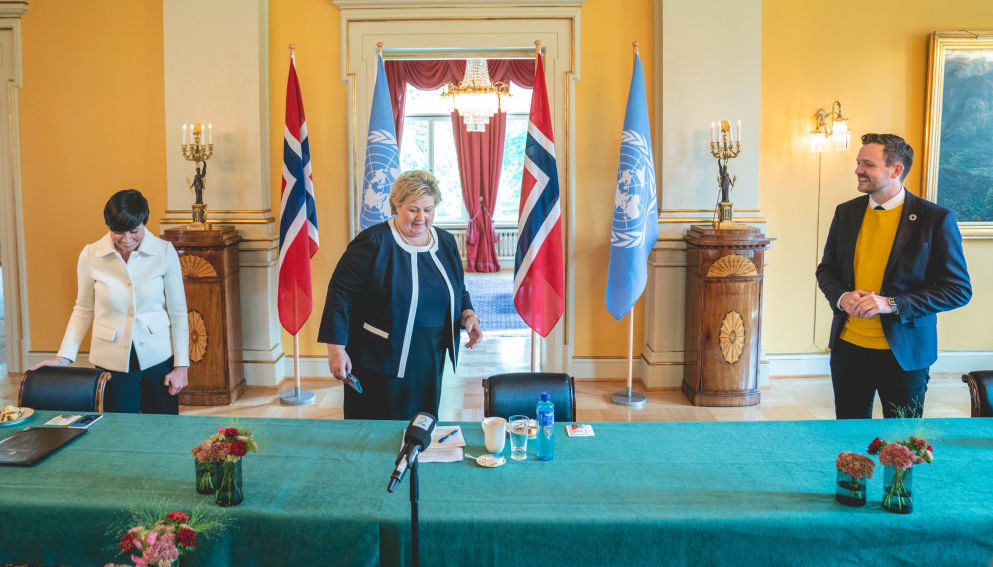

NYT: Norway’s Supreme Court Makes Way for More Arctic Drilling
The top court ruled against environmental groups; the right to a clean environment did not bar the government from drilling for offshore oil, and that Norway did not legally carry the responsibility for emissions stemming from oil it has exported.
“It just proves that the climate and ecological crisis cannot be solved within today’s systems. There are no tools, no laws nor regulations that keep us from destroying the living conditions for life on this planet as we know it.”https://t.co/wkWhn8JvAE
— Greta Thunberg (@GretaThunberg) December 22, 2020
From original in Norwegian in Harvest Magazine:
Marius Gulbranson Nordby is a lawyer, publishing editor, and writer.
In both the district court and the court of appeal, the plaintiffs in the climate lawsuit upheld that the Constitution § 112 contained an individual right, but for different reasons (in the district court because the emissions were abroad; in the court of appeal because the state could choose other ways to respect the right than by cutting in exactly the oil), it did not win in this particular case.
§ 112 emptied of content
The Supreme Court was not so gracious. With crushing efficiency, Judge Høgetveit Berg read his conclusion, which was endorsed by all the judges on this point – § 112 does not contain a general, individual right to a sustainable and health-safe environment.
The Supreme Court looked at both the wording and the preparatory work, which throughout the process has been assumed to speak mostly in favor of the plaintiffs, but not this time. The Supreme Court held that § 112 primarily has the state authorities as to the addressee, not the people. And that is why the state must first and foremost consider how to solve the task that section 112 imposes on them, and where they have reached a solution, the Supreme Court cannot set it aside.
That is, § 112 can only be used by us in areas of environmental law where the state has not already considered the case; The Supreme Court itself was clear that there are rather few such areas left. The Supreme Court kept the door ajar so that § 112 could still have a function as a safety valve – even in the already regulated areas, but there the threshold is very high and not close to being violated in our case.
In its conclusion under this point, the Supreme Court was also clear that it is their task to protect the constitutional values, but believed that the environmental area is different from other areas.
[…] decisions in matters of fundamental environmental issues often [involve] political considerations and broader priorities. Democracy views, therefore, argue that such decisions are made by elected bodies, and not by the courts.
And with those words, the courts have with all possible clarity judged the environment to be a value of secondary importance – something that plays on the B-team and can only be beaten in the table in monstrous cases, and that was not the case here. The Supreme Court takes the point home by referring to the environment as a “third-generation right” and cites a source from 2002. Since then, however, much has happened and internationally, jurisprudence has abandoned such a caste system of rights – they interfere and are equally important. Their project is one.
But not in Norway.
Does climate change not threaten the right to life of avalanche victims?
After first making mincemeat of my beloved § 112, the Supreme Court follows like an obedient dog after the public prosecutor into human rights. Here we learned that the threat from climate change is too derived to specifically threaten our right to life. It is easy for the Supreme Court to say in its warm robes from the Supreme Courthouse in Oslo. More difficult for those who lost their loved ones in the avalanche on Svalbard in 2015.
The Supreme Court also denies that the Dutch Urgenda case can have any significance here. In that case, the Dutch Supreme Court concluded that human rights were relevant to climate change. The Norwegian Supreme Court points out that the cases were different, but does not follow this up with any assessment of whether these differences actually have significance for the argument.
Nor did the procedural errors win out. The Supreme Court believes it was “unfortunate” that the ministry with knowledge, will, and with the intention of presenting the opening of the Barents Sea south-east in a better light, withheld information, but can not see that a deviation of multiple billions and a potential loss actually great significance.
What was undoubtedly unfortunate was that it was not clear from the opening message that the figures were expressed in the contemporary krone value, but not discounted.
The Supreme Court further states that a reader with financial insight would have discovered this error himself and that in any case there were other reasons than making money from oil to operate oil in the Barents Sea – such as security policy and district policy reasons. Judge Webster came with a second vote in which she agreed with Judge Høgetveit Berg in everything about the Constitution § 112 and human rights, but believed that a procedural error had occurred as the climate effects were not sufficiently assessed in the impact assessment. This she believed should have led to invalidity and was supported by three judges. There is no reason to exaggerate the value of Webster’s words, she was allowed to agree and in any case agreed with the majority.
The last man standing roaring on the barricades of the wrong side of history
I have worked with this issue for a long time – never formally involved, but enthusiastically behind the scenes and out on the road where I have traveled around the country and given lectures on the issue, distribution of power, and climate crisis. I did not think we would win, but I thought we would get something better than this. The verdict is blind to the entire climate crisis, to all developments in international law over the past fifteen years, and blind to the interests of future generations.
There is not one nice word to say about this verdict – it is the voice of the last man standing roaring on the barricades of the wrong side of history. It was read out in the capital where it has rained almost continuously throughout December and the temperature has only fallen below zero for a few hours. It was read while children and young people all over the country sat with climate anxiety up to their eyeballs and looking toward the Supreme Courthouse for an assurance that their future had protection.
With this ruling, the Supreme Court has put itself in the back seat – or perhaps in the trunk – of the state board. They have damaged the Constitution’s position as lex superior and played bankrupt as a court developer.
The way forward is through the next parliamentary election. The composition of the Storting’s hall must be changed so that it reflects the people’s desire for a calm liquidation of the oil industry and protection for the future. We should also look at the procedures for appointing judges and try to do something about the court skepticism in the country that has fostered the cowardice we saw today.
But it will be tomorrow. Today it is allowed to be angry and upset. At least that’s my plan.





There is 1 comment
Comments are closed.